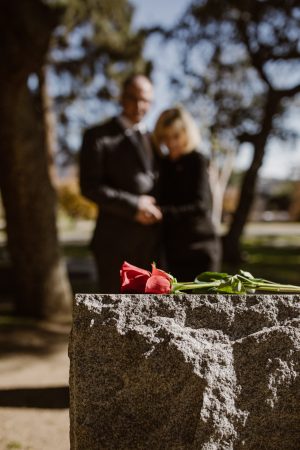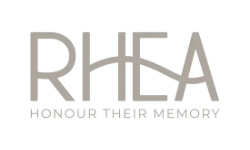Whatever your beliefs, saying goodbye your way is important.
A recent survey of funeral directors, conducted by Dr Natalie Roche and reported on in Irish media by Lynne Kelleher, has described new trends among funerals as “crazy” with some funeral directors expected to cover a range of extra tasks requested by customers.
The survey findings identify a greater need among the public for a wider range of services, additional support and more personalised choices when they find themselves organising a funeral and perhaps these changes reported by funeral directors, point to a need for additional support for the family.
Funerals, taking place as they do so quickly in Ireland, tend to be short, intensely busy and stressful periods, however at RHEA we believe a funeral need not lack the personal meaning we have come to expect from other milestone events.

Funeral Director / Funeral Co-ordinator – what’s the difference?
The central role of a funeral director is to compassionately look after the person who has died and this involves considerable work in preparing them for their funeral and burial or cremation. This essential, private work must be done by the professional undertaker in the short few days following a death; they may not be able to attend to the many other tasks and concerns that fall on a family and their household at this difficult time. A grieving family are likely to be focused on ensuring a personalised funeral that truly honours the person at the centre, gathering friends and family together to remember. A significant burden of organisational tasks accompanies this.
Funeral co-ordinators such as RHEA, take care of the all the additional jobs and tasks that people often don’t realise form part of a funeral. This can be anything from helping with carefully chosen music pieces and particular types of music or musicians, readings and ceremonial aspects, gifts and momentos, rituals and more. Outside of the funeral itself, support can be in the form of helping organise the gathering together of friends and family in remembrance by organising catering, looking after guests to the house, or after the funeral ceremony, making travel and accommodation arrangements for those travelling long distances and any imaginable little detail during those days. Our job is to do that extra work behind the scenes, to allow those in mourning to support each other, relieved of the stress of to-do lists and numerous phone calls so they can arrive at the funeral ready to say goodbye, without having to juggle and manage their way through various jobs on the day.
Growing trend for non-religious funerals
At the moment, 15% of funerals conducted in Ireland are not religious ceremonies and we expect, that, like other life milestones such as weddings and the arrival and naming of children, we will see greater numbers of people opt for customised ceremonies and events that honour their beliefs and the lives they live. Over the coming years, we will see a growing need for a wider variety of services, as more people move away from the traditional church funeral. This will bring significant changes to the funeral industry and we are pleased to be at the forefront of serving bereaved people at a time when they have many questions and difficult decisions to make.

Whatever your beliefs, saying goodbye your way is important.
Regardless of whether someone chooses a religious service or a secular ceremony, the wish to personalise the occasion and seek support with arrangements is a legitimate choice from which those in mourning can draw great comfort in their bereavement, in the months and years after the funeral itself, as they look back on the meaningful choices they made to honour their lost loved one.
Undoubtedly, funeral directors provide an essential service to the public, no more so than over the past 2 years. Perhaps, given the changing demands from the public reported by funeral directors, we are beginning to move forward to new forms in Irish funerals which can facilitate a more personalised approach with the help of a funeral coordination service, while allowing the funeral directors to continue to look after the person who has died with the specialist care and compassion required.
Read the original Irish Independent article from 17 April here:
